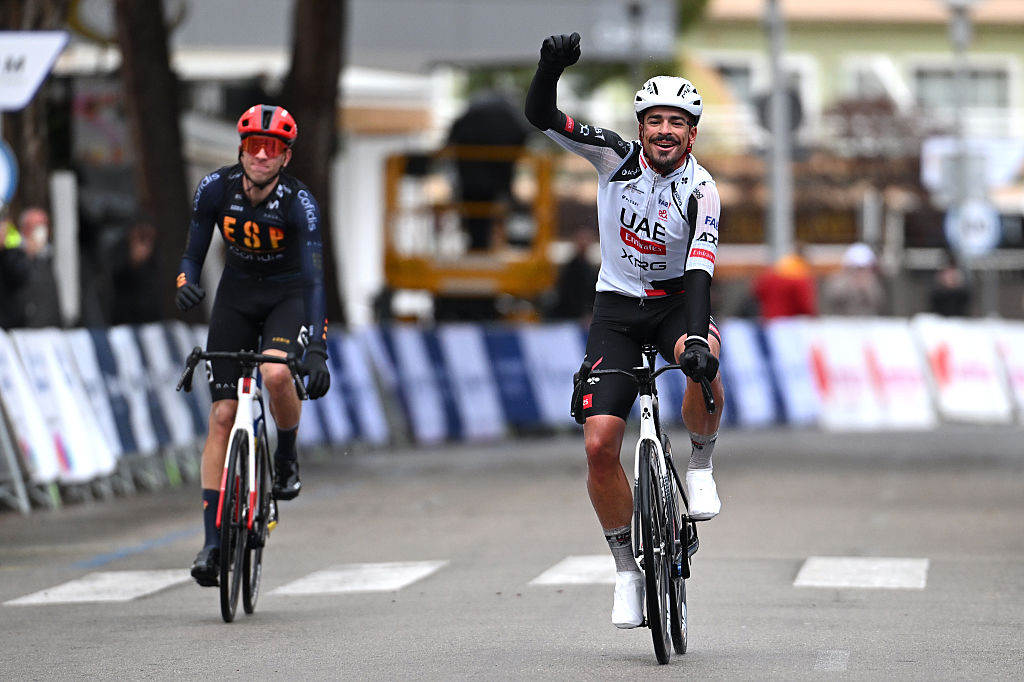Brad McGee: No time like the present
Finding his own voice amid the chaos
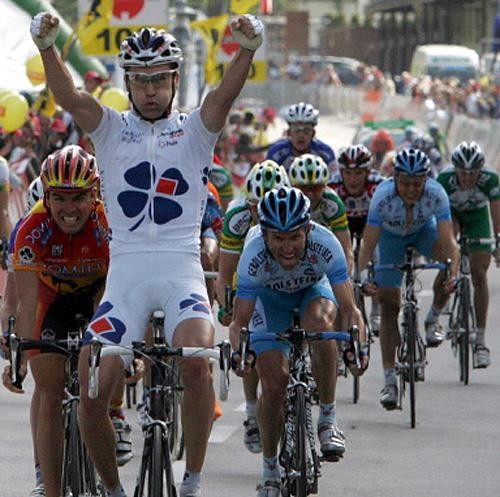
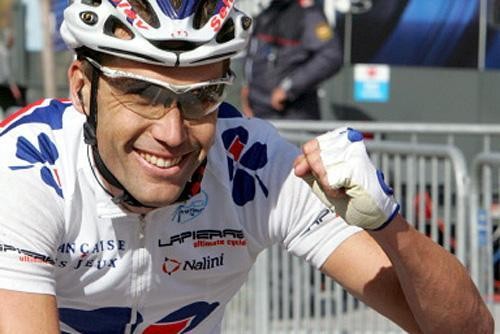
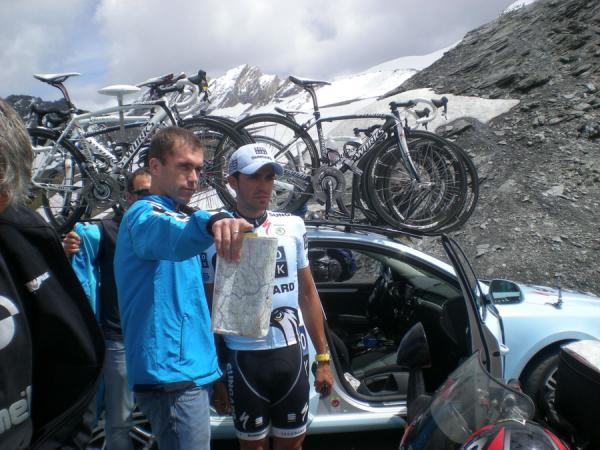

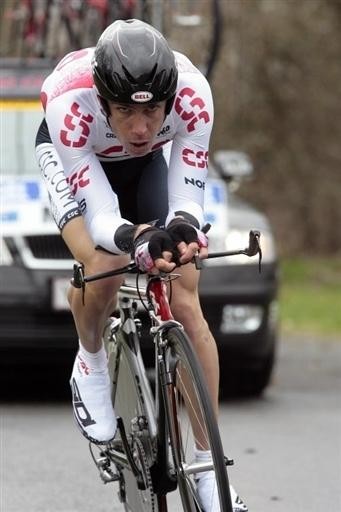
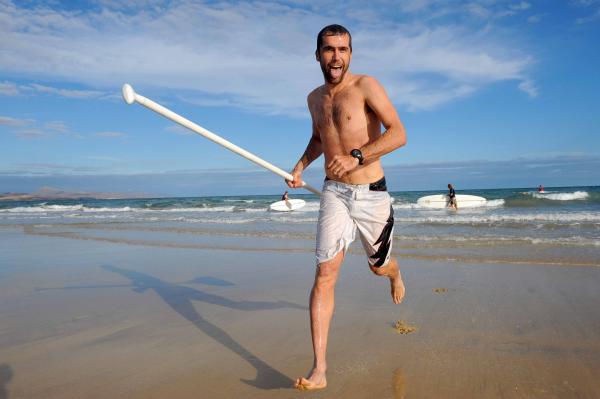
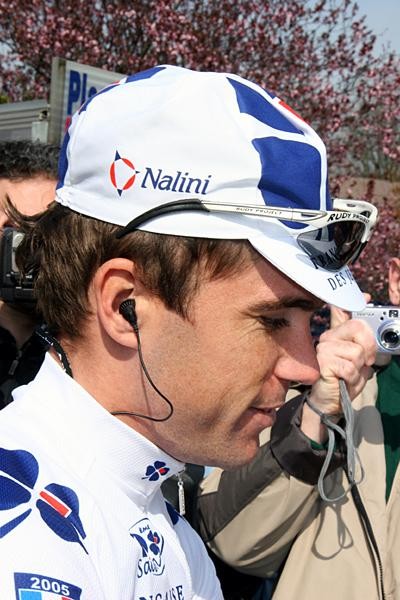
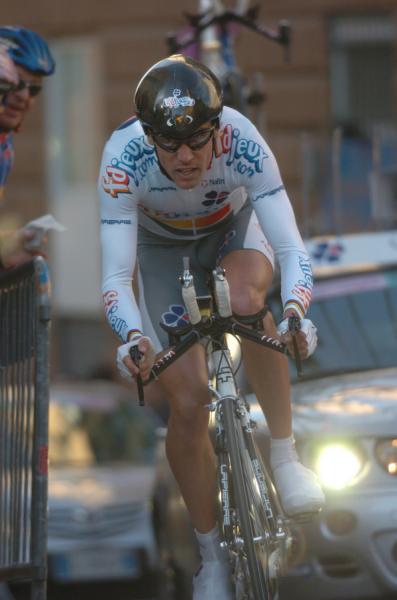
Brad McGee is between jobs. He has wrapped up his role as a directeur sportif with Saxo Bank-Tinkoff Bank and is using the down time to apply for the role of head coach with the New South Wales Institute of Sport, where his own skills were allowed to develop over two decades ago. It's given him a sense of freedom.
McGee's last ride - with his friends
Porte praises McGee, Julich after ProTour stage win
McGee to direct Contador at Spanish Nationals
Saxo Bank's McGee praises Tour de Taiwan
Michaelsen joins Saxo Bank as sport director
Cycling Australia swallows its own bitter pill
Vaughters: Cycling Australia should not have turned its back on Hodge, White
Voigt says he can still race at age 41 because cycling is cleaner
Orica-GreenEdge dismisses Matt White
Orica-GreenEdge's 'Vance Review' to hopefully conclude July 2013
Last week, McGee found his voice in a moving piece written for the Sydney Morning Herald titled 'How dopers stole the best years of my career'. It had taken some consideration. He deliberated his approach carefully but while the experience was cathartic and draining, McGee describes it as liberating.
"I'm no longer really tied to Saxo, it's just winding up; I'm far from being with NSWIS although it's more than likely where I'll end up but this is my voice, this is me," the 36-year-old told Cyclingnews.
The article certainly didn't cover all the bases; he did not feel that it was the time or the place for some issues to be raised. But it did put McGee's career in perspective.
Saxo Bank and Riis
News that McGee would not be continuing with his role at the Danish WorldTour team came as a shock. The announcement itself came out on October 18, just as financial details were being revealed in the Padua investigation and the fallout from the USADA report continued.
"It just made for an awfully difficult press release," McGee admitted. "This has been coming for half a year. It's something that I've been working on with the team, Bjarne - and obviously I'm looking at getting back here. I've been very open the whole way through from the first phone call to my decision; just out of fairness and I think it's the way to do things."
The latest race content, interviews, features, reviews and expert buying guides, direct to your inbox!
For McGee, he has reached the point in his life post-racing where he feels the role with NSWIS is apt for his own growth and development. He says there were three considerations - financial security, personal, and family. The travel required when you're on the WorldTour was not one of them. He admits he has the 'travel bug' and was comfortable of the lifestyle that it resulted in.
"It's the way I've always made major decisions, just to sit down with the 'for and against'," he explained. "Itemise each point and come up with a decision. In the end it's not that difficult even though it is quite a major change."
In his new state, enjoying the relative ease that comes with no working ties, had he realised that perhaps he had felt restricted in the past? McGee says it's a possibility but then again, writing about his own experiences in such a manner was not something he had ever contemplated.
"I like to think that when it comes to media that I'm professional first, rather than personal. There is that personal aspect with everyone and rarely do I get that out.
"I just had my role. I was a rider, then a directeur. I guess I leave that for personal friends and family. We have a lot of long dinners down here in the Highlands. It's not like I bottle it up, I can tell you. It's just... Where do you put it? I prefer to keep that private most of the time."
If there had been criticism of McGee's article it had been where he had stated that CSC, as the team of Bjarne Riis had been known when he was riding there, had been a leader in implementing strong team-based anti-doping policies.
"I guess there are still a lot of questions hanging out there for the early CSC years but I can only talk about my time there," McGee told Cyclingnews. "The reason I went there was because Bjarne revealed his sinful past and stood up and said okay, but this is now and this is how I'm going to run things. At the time he was probably the only bloke, or one of the very few, who've done it in a similar position. For me it was like a no-brainer. My whole time in the team has confirmed that fact that he is a leader in internal anti-doping measures."
There are two lines in McGee's article where he writes about ways that doping can be prevented.
"Know the people around you. Be sure they will support you in success or failure and will never support unethical choices."
A lot of the time that McGee has spent during the last two seasons as a DS has been with Alberto Contador. The Spaniard has been stripped of two grand tour wins, the 2010 Tour de France and the 2011 Giro d'Italia. It was McGee behind the wheel when Contador won the recent Vuelta a España. The same Contador who has been dogged with various doping allegations since Operacion Puerto, despite being cleared of any wrong-doing.
"I went in with a clean slate," McGee said, knocking back the notion of having pre-conceived ideas. "The whole time I've worked with Alberto it's been top-notch. I can tell you there's been absolutely no hint of anything suspect as far as I was concerned. Like I was explaining before when I was talking about Bjarne, I can only talk about my time with him. And it's the same with Alberto.
"This guy, in January, is good enough to win a grand tour and it's just a question of by how much," he explained. "He's an amazing athlete. He's a freak as far as I'm concerned. He's got all the elements - he's the perfect size so he can morph from a time triallist from a climber, his work ethic is second to one - he's just meticulous to the final annoying point. He really drives you into the ground because of how complete he is on all aspects."
The Australian fallout
McGee was unsure if there was a need to talk about the confessions of Matt White and Stephen Hodge when he was writing his article. If he's brutally honest, he still queries the need. But he does raise the question that many within the sport are now chewing over - especially in relation to White. McGee's near-hour-long conversation with Cyclingnews came just before Orica-GreenEdge would announce that White had been dismissed from the position of sports director.
One thing that McGee has any certainty over is that he does not believe that cases like White's and Hodge's should be treated lock-stock. When it comes to White in particular, McGee says that his roles with Cycling Australia and Orica-GreenEdge needed to be treated separately.
"First off I think this is where the biggest error has been; that this hasn't been highlighted before any commitment was made from both parties and they've got to work that out," McGee explained. "It might just be something that creates a new passage into the future. I know he does a great job. I couldn't imagine just knowing Whitey and the people he works with that he's brought any of his shady past into what he does now. That's just out of the question. But how do these people redeem themselves?"
McGee does not believe that bodies like Cycling Australia should be held accountable for not querying the evidence raised by the likes of Floyd Landis and Tyler Hamilton. It was Landis' letter to USA Cycling in 2010 which was again used by USADA in their Reasoned Decision document. The second release of the evidence was what gave way to White's confession and dismissal.
"Their books; their words didn't count to me," said McGee. "They've just got no credibility whatsoever. Even though there was smoke, it wasn't until I read that report and the words of Christian [Vande Velde] and George [Hincapie] and Frankie [Andreau] that it really hit home."
McGee explained the difficulty that he had with the evidence brought to light by Landis and Hamilton, was that they had denied the truth behind their own falls from grace for so long.
"Tyler tried to come out and tell the world that he had a twin dead inside him," McGee said. "Just write it off to the point that you switch off. And it didn't matter if he was giving more and more real stuff - me, and I think the rest of the world had switched off.
"You can thank them for opening up that investigation but that's it. After that, the chapeau goes to guys like Christian and George. They've done wrong as well but you can imagine the pump they were under to tell the truth."
Asked if he is the man to take up White's role with Cycling Australia, McGee is doubtful. He believes that in order to do the job effectively, one needs to be very hands-on in Europe and if he is successful in his application for the role with NSWIS, that won't be him.
"Cycling is just as much about winning a political game when it comes to worlds or Olympics as it is sheer effort," McGee said. "It's very complex. There's no way you can do it from the other side of the world."
Cause and effect
The Festina Affair in 1998 proved to be a tipping point in McGee's career. It was the same year he had turned professional with Française des Jeux and he also spent a lot of his time preparing for the Commonwealth Games later in the year where he would win two gold medals on the track.
"In FDJ I can tell you the change in the first six months before the Festina Affair, my first six months as a pro, and after it was like night and day and thank fuck," admitted McGee.
Frankly speaking, he had been ready to give it all away.
"I remember talking to my old man and he said 'It's not worth it. Pack up.' That was something I was really considering," McGee told Cyclingnews. "It was amazing luck I guess for many reasons. I could have been pro a year before and I might not be having this conversation now, who knows."
McGee won't divulge what he saw but the tone in his voice is enough to give it credence.
"That's not the point," McGee answers when asked what had caused him to consider walking away. "I had enough to confirm to me that there was a massive change - night and day."
McGee persisted on the road, all the time knowing that while Festina had resulted in a cleaner peloton, all was still not entirely well. The catalyst for his article last week had been the comments made by World Anti-Doping Agency chief John Fahey that "everybody doped" during the Armstrong era - McGee's era. McGee had always hoped there would be a time when he could speak of his own experiences against those with complete disregard for anti-doping practices. He realised that he was at that point when writing his article.
"I remember my words to myself were 'there's no point in my losing any more energy than what I already am fighting these guys, by going into battle in the media by going public,'" McGee had told himself during his racing career. "You've got to understand I was still preparing mentally and physically for bloody hard events which take everything out of you. I was super-absorbed in what I was doing. To go public would only detract from my own level, which takes you away from the ability to perform which doesn't give you a leg to stand on with the media anyway. The best thing I could do was to put my head down and work hard."If you really think about it, it's not that shocking. It's just very, very sad. Unfortunately it's all bloody true."
McGee's anger is still clearly bubbling away. He does not buy into the theory of regardless of what Armstrong is alleged to have done, that he was still the strongest guy in the peloton.
"Fucking forget about it. I'd rather just say wipe it, move on."
Nor would McGee even speak to Armstrong if given the chance.
"I wouldn't bother. He's in his own world. I've lost enough time and energy on him and guys like him."
And so for now, McGee leaves the top echelon of the sport much in the same way as he found it. It's a time of immense change and he's optimistic of the state cycling will be in when he comes up for air again sometime after the next Olympic cycle at the very minimum.
"I'm really just looking forward now and already there's a lot of positive coming out," McGee explained. "I had a lovely internal message from [Australian formula one driver] Mark Webber, saying that what's really important is the message that's being sent to our kids."
McGee's own children have been asking him about his experiences as a rider, but at the same time, McGee has been discovering where they stand too.
"If an eight year-old can tell the difference between right and wrong, these guys have got no excuses."
As a sports journalist and producer since 1997, Jane has covered Olympic and Commonwealth Games, rugby league, motorsport, cricket, surfing, triathlon, rugby union, and golf for print, radio, television and online. However her enduring passion has been cycling.
Jane is a former Australian Editor of Cyclingnews from 2011 to 2013 and continues to freelance within the cycling industry.
